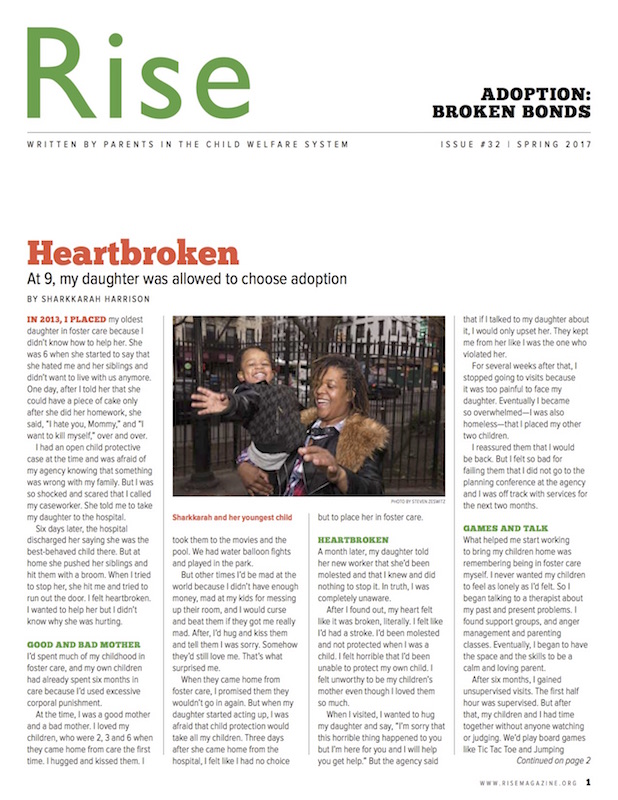Adoption: Broken Bonds
Across the country, roughly 50,000 children are adopted from foster care each year. They are expected to detach from their families and start over with new ones. Their mothers and fathers, stripped of parental rights, are told to let go and move on, unsure of whether they will see their children again.
Adoption can be in the best interest of many children, but experience and research show that it’s not the right option for all children. The trauma caused by separation, the tug of war between families, and the feelings of shame and isolation have lingering effects on parent and child that often go unaddressed.
Maintaining biological connections after adoption has proven to be healthy for child development, but even as openness has become standard practice in many domestic and even international adoptions, foster care adoption law has not kept up with up with research on the benefits of openness.
In this issue of Rise, parents share stories of adoption, including adoptions where adoptive parents broke legal agreements to keep parents and children connected. A formerly incarcerated father vows to appeal his TPR and get his son back. A youth advocate reflects on her decision not to be adopted from foster care as a teen. A grandmother says adopting her grandchildren preserved their family’s bond. A biological mom explains how openness in adoption can be the best thing for everyone involved.
Child welfare professionals reinforce the need for policy and practice to meet families where they are, explain the legal options parents do have, encourage parent-foster parent connections throughout the case, and support openness after adoption.

